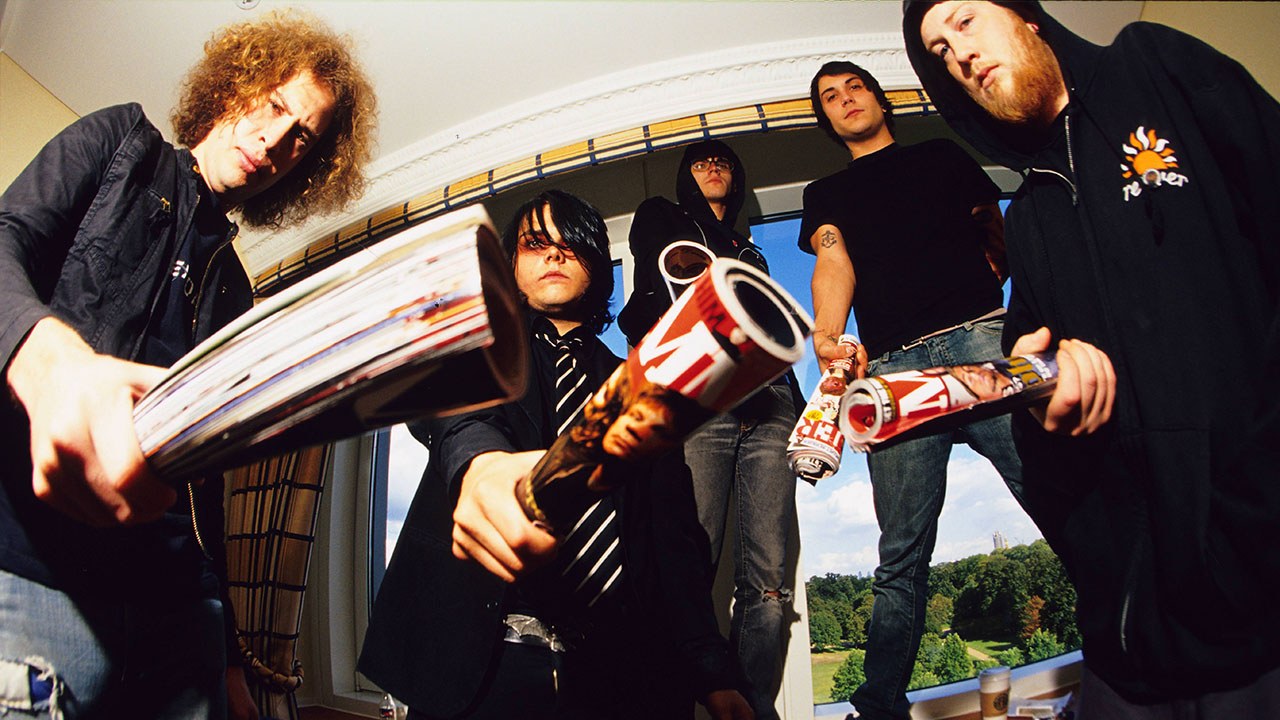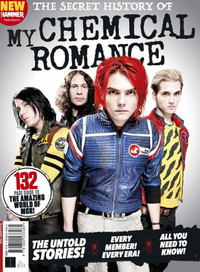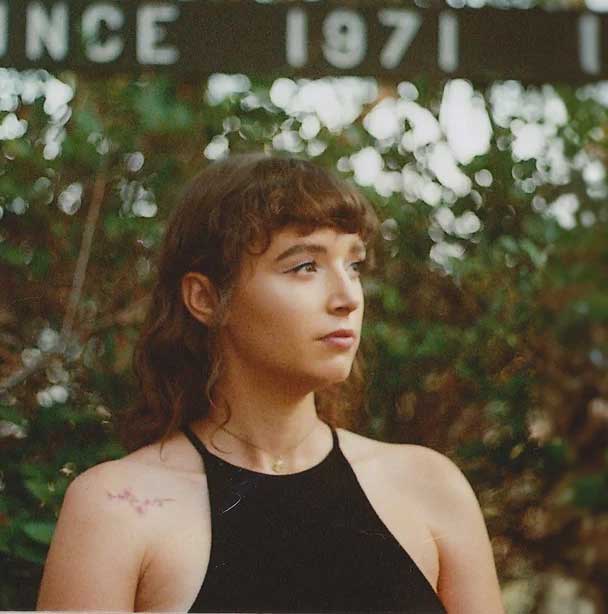When Gerard Way first sang 'I wouldn’t front the scene if you paid me' on Thank You For The Venom in 2004, he maybe actually believed it. Seventeen years later, it’s funny that he thought he ever had a choice in the matter. My Chemical Romance would soon become the most influential band in emo, if not alternative music at the time. When they split up in 2013, they left a trail of broken hearts and a scene that was all-but dead. Still, their dedicated MCRmy never gave up, constructing summoning circles and praying for a comeback that would inject new life into music. In 2019, when My Chem finally made their prayers come true, they sold out stadiums across the world in minutes. Hundreds of thousands of people broke the refresh button on their laptops trying to acquire tickets. While most of those shows never came to pass, it cemented what Way might once have denied: they didn’t just front any scene. They were the scene.
Thank You For The Venom is often sidelined and overlooked in favour of bigger, more theatrical My Chemical Romance songs like Welcome To The Black Parade or Helena. The second single off Three Cheers For Sweet Revenge, it had the unfortunate job of following loser anthem I’m Not Okay, which with its fun high school-themed video and catchy chorus had everyone singing 'I’m not o-fucking-kay' – or the radio-friendly 'I’m really not okay' – well into 2005 (and the next two decades). Quietly dropped between Helena and I’m Not Okay, and without a video to accompany the blood-red single, it faded into relative obscurity for some. But it shouldn’t.
Opening with crushing guitars more reminiscent of heavy debut I Brought You My Bullets, You Brought Me Your Love than the sometimes polished tracks on Three Cheers, Thank You For the Venom starts as it means to go on. With Way snarling 'Sister, I’m not much a poet but a criminal', a reference to the Morrissey track Sister I’m A Poet, Venom feels as if it’s teetering right on the edge of exhaustion and insanity. But it’s the chorus of 'Give me all your poison/and give me all your pills/and give me all your hopeless hearts and make me ill' followed by a chaotic guitar solo inflected with glam-rock influence that confirms it: Venom is the best track on Three Cheers.
While much of the power of Venom lies in how hard it goes, it isn’t the only thing that makes it such a touchstone of My Chemical Romance’s unique history. Over the last few years, emo has had a renaissance and undergone a mainstream revival that makes it easy to forget just how controversial it once was. My Chemical Romance themselves, somewhere between those sold-out stadiums and a 2011 appearance on kids’ TV show Yo Gabba Gabba, are far from the black sheep they once were. There is very little, anymore, as controversial about anything that My Chemical Romance represent as there was in the mid-00s: men wearing makeup, songs about murder, swearing and screaming. For the most part, it’s a good thing. Nobody really misses having to justify listening to lyrics like 'Singing songs that make you slit your wrists' to their concerned parents.
It wasn’t always that way, and Thank You For The Venom serves as a valuable reminder. It takes aim at the critics who came out against My Chemical Romance pretty much instantaneously: 'You're running after something that you'll never kill/if this is what you want, then fire at will,' Way yells. It’s a rallying cry that My Chemical Romance and their dedicated fans won’t be taken down easily. They were misunderstood, and their candour around mental health was often misinterpreted by the moral police as an instruction to malleable teenage minds to go out and self harm. It didn’t matter that they were insistent that that wasn’t the case: panicked parents weren’t listening. In interviews, Way and Iero referenced the responsibilities that they felt for fans’ mental health: “We’re not going to be able to do anything good for these people so we try to be mature and keep being the band we are and be there with our words and live show,” said Way in 2005. On Thank You For The Venom, My Chemical Romance were pre-empting the storm to come.
In 2008, tabloids capitalised on the tragic death of a young girl to whip up a frenzy about My Chemical Romance and emo more widely with the headline, “Girl, 13, hangs herself after becoming obsessed with 'Emo suicide cult' rock band”. What followed was unprecedented: thousands of fans and emos marched in protest with placards reading, “I’m Not Okay About the Daily Mail” and “MCR Saved Our Lives and Will Save Yours”. The tabloids’ wilful misinterpretation of My Chemical Romance’s messaging as being pro-suicide forced the band to defend themselves against critics on their website: “My Chemical Romance are and always have been vocally anti-violence and anti-suicide. As a band, we have always made it one of our missions through our actions to provide comfort, support, and solace to our fans,” they wrote, reiterating that The Black Parade is an album of hope and courage.
It’s easy to forget, as emo has been assimilated into culture to a point where red and black hair and lyrics about pills barely even register, that My Chemical Romance were once the centre of one of the UK’s biggest moral panics. Thank You For The Venom, with its pushback against those who misinterpreted MCR, is a time capsule of an era when not a lot of people did get My Chemical Romance. But those that did, the fans who were devoted in 2005 and maybe still are now will always be a part of My Chem history. As the band confronted unimaginable misinterpretations of not only their music but their intention with it, their loyal fans embodied the energy of Thank You For the Venom and marched against the critics. That is something nobody can ever kill.



